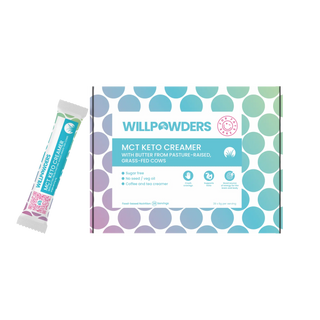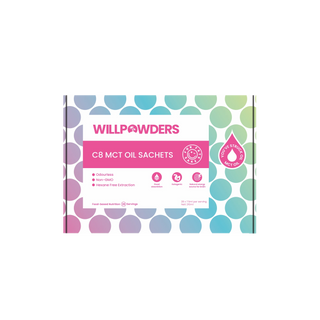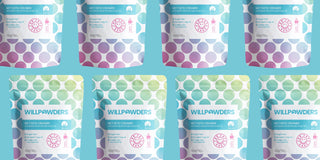
MCT/ Fat Blogs
Does Eating a High-Fat Diet Raise Cholesterol?
Your Need to Knows when it comes to Cholesterol
Cholesterol, Statins, and the Great Debate: How to Approach Heart Health in the Modern World
Imagine a world where, overnight, millions suddenly found themselves labelled with high cholesterol—not because of a dietary change but due to shifts in health guidelines. It’s no fiction. In 2001, cholesterol benchmarks were adjusted, and suddenly, a vast new population was advised to start statin therapy. By 2004, guidelines were tightened again, expanding the statin candidate pool even further. Then came 2013, when the American Heart Association and the American College of Cardiology removed specific LDL limits, meaning over 70% of healthy Americans were now considered for statins. Many critics voiced concerns, with some questioning if financial motives played a role, as it was later revealed that many on the guideline panels had financial ties to statin manufacturers.
For those prescribed statins, side effects like liver issues, kidney problems, and even mood changes have been reported. It’s worth discussing with a healthcare provider about the benefits and risks of statins and exploring lifestyle choices that may naturally support cholesterol and heart health.
What Exactly Is Cholesterol?
Cholesterol is a waxy substance found in every cell of the body and is essential for several biological functions. It plays a critical role in hormone production, vitamin D synthesis, brain function, and the production of bile, which aids in digestion. Interestingly, the liver produces most of the cholesterol in the body, making dietary cholesterol less impactful on blood cholesterol levels than previously thought. Far from being the villain lurking in your breakfast eggs, cholesterol is a vital building block in the body.
Why Does Cholesterol Get a Bad Rap?
Low-density lipoprotein (LDL) cholesterol, often referred to as "bad" cholesterol, can sometimes accumulate in the arteries, forming plaque that may obstruct blood flow. However, research suggests that cholesterol’s role in heart health is more complex than previously thought, and factors like inflammation and insulin resistance may also be at play.
The sugar industry funded studies in the 1960s that shifted public attention away from sugar and onto saturated fats, perpetuating the idea that dietary fat and cholesterol were the main culprits in heart disease. This influence persists, impacting dietary guidelines and contributing to confusion around the role of fats in heart health.
Does Eating Fat Cause High Cholesterol?
The relationship between dietary fat and cholesterol is nuanced. While some fats may influence cholesterol, recent research shows no consistent link between fat intake and heart disease. In fact, studies suggest that high-fat diets may actually increase high-density lipoprotein (HDL) cholesterol, often referred to as “good” cholesterol. When it comes to fat, the key lies in understanding which types may support health and which may not.
Here’s a Quick Guide:
- Saturated fats (like those found in grass-fed meat and coconut oil) may not increase LDL cholesterol to the extent previously thought and may support HDL levels.
- Trans fats, commonly found in processed foods, are linked to inflammation and should be avoided when possible.
- Healthy unsaturated fats, like those from olive oil and fatty fish, are rich in omega-3s, which may help support heart health by balancing cholesterol and reducing inflammation.
Sugar: The Driver of “Sticky” Cholesterol
Research shows that refined carbohydrates, including sugars in bread, pasta, and snacks, can cause insulin spikes that contribute to weight gain, cholesterol production, and inflammation in the arteries. Over time, this inflammation may lead to plaque buildup and potentially increase the risk of heart disease.
Focusing on whole foods, vegetables, and healthy fats may help support cholesterol levels and reduce inflammation. Don’t blame fats for what sugar has been up to all along!


Tips to Support Heart Health
Instead of obsessing over cholesterol numbers, consider an approach focused on reducing inflammation and supporting overall health:
- Choose Anti-inflammatory Foods: Omega-3-rich foods like fatty fish and olive oil may help balance cholesterol and reduce inflammation.
- Include Quality Saturated Fats: Options like grass-fed beef and MCT oil can support HDL cholesterol levels without the inflammatory effects associated with trans fats.
- Limit Processed Carbs: Minimising refined carbohydrates and opting for whole grains and antioxidant-rich vegetables may help control blood sugar and reduce cholesterol-related inflammation.
- Exercise Regularly: Physical activity supports cardiovascular health and may help maintain balanced cholesterol levels.
- Manage Stress: Chronic stress may contribute to elevated cholesterol levels, so incorporating relaxation techniques, exercise, and sleep can support heart health.
Cholesterol, Genetics, and Personal Health
For some, genetics play a significant role in cholesterol levels. Conditions like familial hypercholesterolaemia (FH) may require targeted approaches, including dietary changes and, in some cases, medication. Consulting with a healthcare provider can help determine the best course of action for managing cholesterol based on individual needs.
In Summary
Supporting heart health can mean focusing on a lifestyle that minimises inflammation, incorporates balanced nutrition, and prioritises well-being. Instead of fixating on cholesterol numbers, support your body’s natural functions by eating well, staying active, and managing stress.
For more insights on the evolving perspectives around cholesterol, check out Dr Malcolm Kendrick’s books The Great Cholesterol Con and The Clot Thickens, which explore cholesterol myths and the complex science of heart health. By prioritising a holistic approach to health, you may find that cholesterol isn’t something to fear but rather to support naturally.
Product Information
Add 15ml to your coffee, tea, smoothies, soups, sauces or dressings.
If you are pregnant, breastfeeding or taking medication under medical supervision, consult a health professional before using. This food supplement should not be used as a substitute for a varied diet. *If you are new to MCT Oil, avoid possible digestive discomfort by starting with a small serving of 5ml and increase slowly over time up to 15ml.
More to Discover
Disclaimer
Our blogs are written with love in the hope that they go some way in helping you feel like the rockstar you are, and whilst we do our due diligence, research like maniacs and fact check our stuff, we know everyone’s journey is different. They are intended to educate and empower you, not usurp medical advice. We would never advise you to stop, adjust, or modify any prescription medication without the direct supervision of your healthcare practitioner, but don’t be afraid to talk to your doctor about your new found knowledge, brought to you by the marvels of nature because they don't know everything! Blogs are always informed by Davinia but often written by a member of the team. Not all blogs reflect Davinia's experiences and sometimes provide alternative perspectives
 Collagen
Collagen
 Protein
Protein
 MCT
MCT
 Electrolytes
Electrolytes
 Vitamins & Minerals
Vitamins & Minerals
 Nootropics
Nootropics
 Accessories
Accessories
 Books
Books











